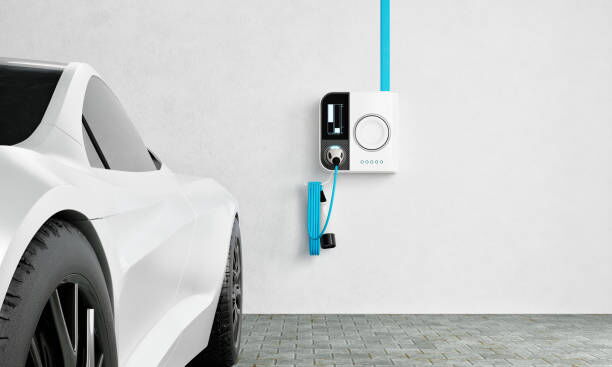Electric vehicles (EVs) are revolutionizing the way we think about transportation, offering a cleaner and more efficient alternative to traditional gasoline-powered cars. However, one of the common frustrations for EV owners is dealing with slow charging speeds. When your EV fast charger isn’t performing up to expectations, it can be a significant inconvenience, especially if you're relying on it for a quick top-up between trips. In this article, we’ll explore seven key reasons why your fast charger might not be delivering the rapid charging speeds you expect, and offer practical solutions to address these issues.

One of the primary factors affecting your charging speed is the current charge level of your EV’s battery. Most fast chargers are designed to charge batteries more quickly when they are in a lower state of charge. However, as the battery approaches full charge, the charging rate typically slows down to prevent overcharging and to prolong battery life. If your battery is already partially charged, you might notice a slower charging speed as it nears full capacity.
The charging speed is also influenced by your vehicle’s battery capacity and its ability to handle peak output power. Different EV models have varying battery sizes and power capacities, which can affect how quickly they can be charged. For instance, a vehicle with a larger battery or higher peak power rating can handle faster charging speeds, while a smaller battery might not support the same level of rapid charging.
If you're using your EV for activities such as running apps, playing media, or even driving while it’s connected to the charger, you may experience slower charging speeds. These activities can draw power from the battery, reducing the amount of energy available for charging. It’s best to minimize usage during charging to ensure the fastest possible recharge time.
When multiple vehicles are charged simultaneously from a single charging station, the available power is divided among them. This can lead to slower charging speeds for each vehicle. If you’re sharing a charger with other EVs, consider scheduling your charging times to avoid congestion and ensure that each vehicle gets the optimal charging speed.
The temperature of the environment where the charging takes place can significantly impact charging speed. Extreme temperatures, whether hot or cold, can affect the efficiency of both the EV battery and the charging equipment. In colder conditions, the battery’s ability to accept charge may be reduced, while in hot conditions, the charging system may throttle the speed to prevent overheating. Charging in moderate temperatures can help maintain optimal charging performance.
Over time, EV batteries naturally degrade and lose their ability to hold a charge as efficiently as when they were new. Battery degradation can result in slower charging speeds and reduced overall performance. If your battery is aging or showing signs of wear, it might be time to consult with a professional to assess its condition and consider replacement options.
Faulty or outdated charging equipment can also be a culprit behind slow charging speeds. Issues with the charging station or the cables can lead to inefficient power transfer and reduced charging rates. Regular inspection and maintenance of your charging equipment are crucial to ensure it operates at peak performance.
One of the simplest solutions to slow charging issues is to ensure that both your EV and charging equipment have the latest software updates installed. Manufacturers frequently release updates that can improve charging efficiency and address known issues. Check for updates regularly and apply them as needed to keep your systems functioning optimally.
Regular maintenance of both your EV and the charging station can help prevent slow charging problems. This includes cleaning connectors, checking for damage, and ensuring that all components are functioning correctly. Routine checks can identify potential issues before they become significant problems, helping to maintain efficient charging speeds.
Ensure that your EV and charging equipment are fully compatible with each other. Incompatible systems can lead to reduced charging speeds and other operational issues. Verify compatibility through manufacturer specifications and, if needed, consult with a professional to address any discrepancies.
If your battery or charging station is beyond repair or shows significant signs of wear, replacement might be necessary. A new battery or an upgraded charging station can restore optimal charging speeds and improve overall performance. Consult with your EV manufacturer or a qualified technician to explore replacement options and make informed decisions.
Experiencing slow charging speeds with your EV fast charger can be frustrating, but understanding the underlying reasons and taking appropriate action can help mitigate these issues. From battery charge levels and capacity to environmental conditions and equipment maintenance, several factors can impact charging efficiency. By addressing these factors and performing regular maintenance, you can ensure that your EV’s charging experience remains as quick and efficient as possible. If problems persist, don’t hesitate to seek professional assistance to keep your EV running smoothly and ready for the road.
